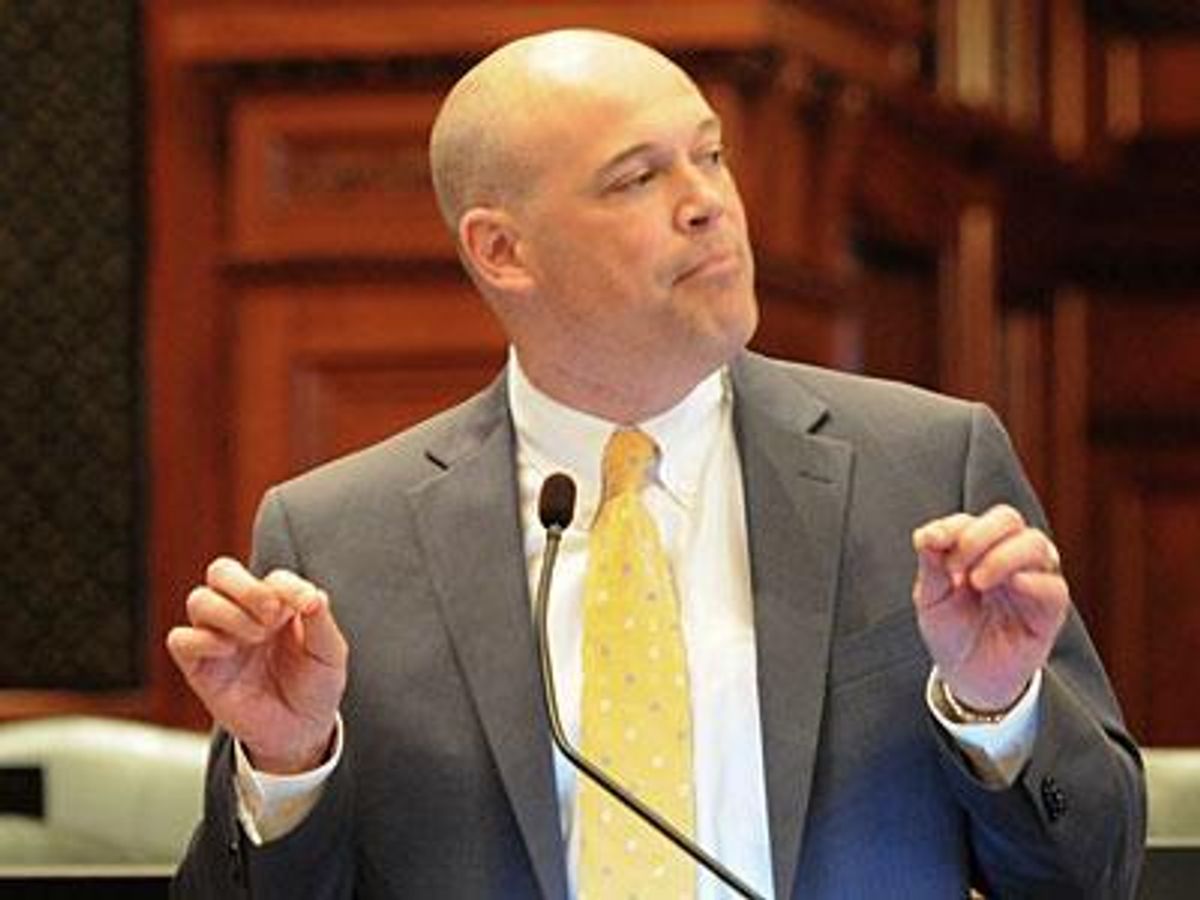Support for marriage equality seems to have carried little political cost for Illinois Republicans in yesterday's primary races, in contrast to what's happened in some other states, such as New York.
Of the three Republican House members who voted for the Illinois marriage equality bill last year, two won their primaries decisively, while a third squeaked by in a race that may be subject to a recount.
Rep. Ed Sullivan, an early advocate of the bill, won his House primary over challenger Bob Bednar with 58 percent of the vote, the Daily Herald reports. Sullivan said conservative groups backing Bednar denounced him for his marriage equality vote, but it apparently did not hurt him. "My district does not believe that marriage equality is the number one issue," Sullivan told the Associated Press. His district is in the northern suburbs of Chicago.
Another marriage equality supporter, Rep. Tom Cross, is leaving the House to run for state treasurer; he won the Republican nomination for that office handily, holding 57 percent of the vote to Bob Grogan's 43 percent, with 95 percent of ballots counted, according to the Chicago Tribune. Cross will face Democrat Mike Francis, who has been a state senator, in the November general election. Incumbent treasurer Dan Rutherford did not run, instead seeking the Republican nomination for governor.
Rep. Ron Sandack, representing a district in Chicago's western suburbs, was leading Keith Matune by 6,753 votes to 6,600 this morning, a margin so narrow that Matune could challenge the results, according to the Naperville Patch. Sandack's marriage equality vote became an issue in the race. One anti-Sandack mailer carried a picture of two men kissing and the tagline "You can kiss the GOP good-bye with officials who vote like Democrats," the Patch reports. Another mailer featured a photo of Chicago mayor Rahm Emanuel, a former dancer, in a leotard, with the caption "Now we know where Ron Sandack learned how to dance."
Just two years ago in another state, the outcome for Republican supporters of marriage equality was markedly different. In New York, four GOP state senators voted for marriage equality legislation in 2011; the 2012 election saw only one returned to office.
The Illinois results, however, indicate that support for marriage equality is no longer necessarily a liability for Republicans, according to some political observers. "Had the three Republicans lost, it would have probably given pause to Republicans considering backing gay marriage in other states where the matter comes up in the future," writes Washington Post blogger Sean Sullivan. "But given two decisive wins and a third tentative victory, gay rights advocates have a lot to be happy about a day after the election."













































































